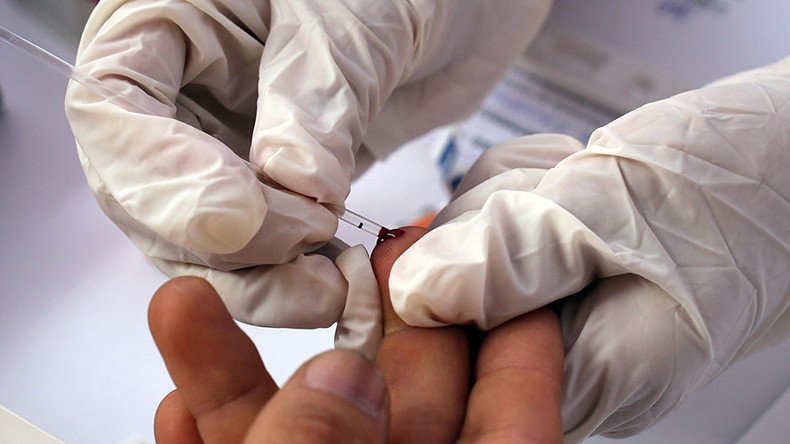Govt orders inquiry into NHS blood contamination scandal that claimed more than 2,000 lives

The government is to hold a full inquiry into the “worst NHS treatment” in history which saw more than 2,000 people killed by contaminated blood transfusions.
A blood transfusion scandal back in the 1970s and 1980s caused the deaths of at least 2,400 people after they were infected with Hepatitis C and HIV, while a recent parliamentary report found that the blood of around 7,500 patients was tainted with the infection.
Prime Minister Theresa May and Health Secretary Jeremy Hunt told cabinet colleagues that a “wide-ranging” inquiry would now be carried out in order to get to the bottom of such “immeasurable hardship.”
"Consultation will now take place with those affected to decide exactly what form the inquiry will take, such as a Hillsborough-style independent panel or a judge-led statutory inquiry,” a spokesman for the PM said.
“It is a tragedy that has caused immeasurable hardship and pain for all those affected and a full inquiry to establish the truth of what happened is the right course of action to take,” the spokesman added.
The new investigation will come after the long-awaited Penrose inquiry into the scandal, published in March 2015 with an apology from both the UK and Scottish governments.
Some of those affected, however, deemed it a “whitewash” as they argued the inquiry fell short of finding anyone responsible for the mistake.
The announcement of the latest probe comes just before the Commons holds an emergency debate on the tainted blood scandal.
The debate was granted by Commons Speaker John Bercow at the request of Labour's Diana Johnson, who thanked the PM for acknowledging the need for an inquiry and “putting party politics aside in the cause of giving people their basic right to answers.”
“An inquiry must also ensure that those involved in the scandal provide oral and written evidence, and it must investigate not just the lead-up to this tragedy but the aftermath – including the alleged criminal cover-up and the loss of documents and medical records,” the Hull North MP added.
Liz Carroll, chief executive of the Haemophilia Society, said the government had repeatedly ignored evidence of negligence, adding the inquiry would finally give the families of those affected the “chance to see justice.”
Labour leader Jeremy Corbyn said an inquiry is necessary, suggesting it could lead to prosecutions.
“Two thousand four hundred people died as a result of this contaminated blood, and it’s caused unbelievable stress to many, many more people,” he said.
“It was obviously a serious systemic failure. I think we need the strongest possible inquiry that can, if necessary, lead to prosecution actions as a result, but above all get to the bottom of it.”
At the weekend, former Health Secretary Andy Burnham, who is now mayor of Greater Manchester, told Sky News that he would summon the police if ministers failed to act on the scandal.













